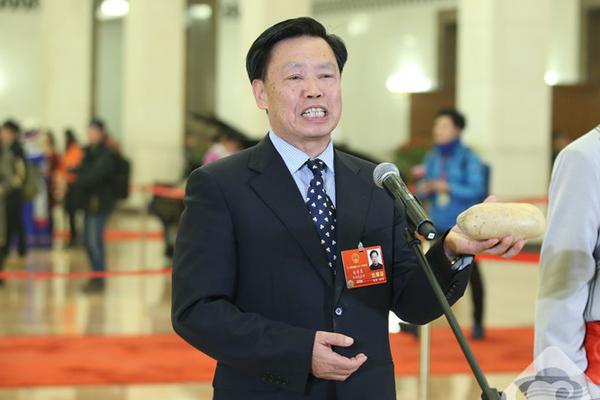
Short-term memory, long-term memory. Cognitive psychology regards memory as the process of coding, storing and extracting input information by the human brain. Memory is divided into three systems: instantaneous memory, short-term memory and long-term memory, which is based on the different ways of encoding, storing and extracting information, as well as the different length of information storage time.
What are the three memory systems: memory is also regarded as the process of the human brain encoding, storing and extracting input information, and according to the different ways of coding, storing and extracting information, as well as the different length of information storage time, memory is divided into instantaneous memory, short-term memory and long-term memory. A system.
What are the three memory systems? According to the different ways of encoding, storing and extracting information, and the different length of information storage time, memory is divided into three systems: instantaneous memory, short-term memory and long-term memory.
The three stages of memory are sensory memory, short-term memory and long-term memory. Sensory memory: Sensory memory refers to the information we receive through various sensory organs, such as vision, hearing, touch, taste and smell.
What are the three memory systems? According to the different ways of coding, storage and extraction of information, and the different length of information storage time, memory is divided into instantaneous memory, short-term memory and long-term memory. Remember the three systems.
The coding method of instantaneous memory, that is, the way instantaneous memory remembers information, is the image of external stimuli. Because the information of instantaneous memory is first registered in the sensory channel in the form of sensory images, instantaneous memory has a distinct image. The capacity of instantaneous memory is large, but the retention time is very short.
Perception is the cognitive process of giving meaning through information. ( 2) Working memory. It is the memory of processing and encoding information in the human brain within a minute. The holding time is about 5 seconds to 1 minute. Short-term memory also includes direct memory and working memory.

Weber's score), which is only applicable to medium-intensity stimuli, which is different from the Weber's score of sensory organs (2) Fechner's Law: 1860, using the differential threshold as the unit of sensation, a stimulus was measured. The difference threshold contained is believed to be the psychological intensity caused by this stimulus.
The concept of memory is the psychological process of accumulating, preserving and extracting individual experience in the mind.From storing into the brain to extracting and applying again, this complete process is collectively called memory.
Long-term memory refers to the memory maintained for more than a minute after external stimuli appear in a very short time. Features: The capacity of memory is unlimited, whether it is the type or quantity of information. Coding Semantic coding: Use words to process information and organize coding according to the meaning of the material.
Memory and memory process Definition: It is the reaction of past experience in the mind. Past experience refers to the perception of things, thinking about problems, the emotional experience caused by things, and the actions that have been carried out in the past. Function: It is the root of wisdom and the cornerstone of psychological development.
Binance download-APP, download it now, new users will receive a novice gift pack.
Short-term memory, long-term memory. Cognitive psychology regards memory as the process of coding, storing and extracting input information by the human brain. Memory is divided into three systems: instantaneous memory, short-term memory and long-term memory, which is based on the different ways of encoding, storing and extracting information, as well as the different length of information storage time.
What are the three memory systems: memory is also regarded as the process of the human brain encoding, storing and extracting input information, and according to the different ways of coding, storing and extracting information, as well as the different length of information storage time, memory is divided into instantaneous memory, short-term memory and long-term memory. A system.
What are the three memory systems? According to the different ways of encoding, storing and extracting information, and the different length of information storage time, memory is divided into three systems: instantaneous memory, short-term memory and long-term memory.
The three stages of memory are sensory memory, short-term memory and long-term memory. Sensory memory: Sensory memory refers to the information we receive through various sensory organs, such as vision, hearing, touch, taste and smell.
What are the three memory systems? According to the different ways of coding, storage and extraction of information, and the different length of information storage time, memory is divided into instantaneous memory, short-term memory and long-term memory. Remember the three systems.
The coding method of instantaneous memory, that is, the way instantaneous memory remembers information, is the image of external stimuli. Because the information of instantaneous memory is first registered in the sensory channel in the form of sensory images, instantaneous memory has a distinct image. The capacity of instantaneous memory is large, but the retention time is very short.
Perception is the cognitive process of giving meaning through information. ( 2) Working memory. It is the memory of processing and encoding information in the human brain within a minute. The holding time is about 5 seconds to 1 minute. Short-term memory also includes direct memory and working memory.

Weber's score), which is only applicable to medium-intensity stimuli, which is different from the Weber's score of sensory organs (2) Fechner's Law: 1860, using the differential threshold as the unit of sensation, a stimulus was measured. The difference threshold contained is believed to be the psychological intensity caused by this stimulus.
The concept of memory is the psychological process of accumulating, preserving and extracting individual experience in the mind.From storing into the brain to extracting and applying again, this complete process is collectively called memory.
Long-term memory refers to the memory maintained for more than a minute after external stimuli appear in a very short time. Features: The capacity of memory is unlimited, whether it is the type or quantity of information. Coding Semantic coding: Use words to process information and organize coding according to the meaning of the material.
Memory and memory process Definition: It is the reaction of past experience in the mind. Past experience refers to the perception of things, thinking about problems, the emotional experience caused by things, and the actions that have been carried out in the past. Function: It is the root of wisdom and the cornerstone of psychological development.
 Binance APK
Binance APK
294.84MB
Check Binance exchange
Binance exchange
276.15MB
Check Binance APK
Binance APK
251.67MB
Check okx.com login
okx.com login
811.42MB
Check Binance APK
Binance APK
486.66MB
Check Binance download
Binance download
278.68MB
Check Binance exchange
Binance exchange
933.46MB
Check OKX Wallet login
OKX Wallet login
335.71MB
Check Okx app download
Okx app download
639.75MB
Check Binance APK
Binance APK
772.69MB
Check OKX Wallet login
OKX Wallet login
356.43MB
Check Binance US
Binance US
843.29MB
Check Binance US
Binance US
687.49MB
Check Binance wikipedia
Binance wikipedia
127.31MB
Check OKX Wallet apk download
OKX Wallet apk download
729.44MB
Check Binance app download Play Store
Binance app download Play Store
244.85MB
Check Binance US
Binance US
936.68MB
Check Binance APK
Binance APK
288.17MB
Check OKX Wallet APK
OKX Wallet APK
746.67MB
Check okx.com login
okx.com login
973.97MB
Check Binance login
Binance login
837.14MB
Check Binance download
Binance download
884.65MB
Check Binance app
Binance app
678.77MB
Check OKX Wallet to exchange
OKX Wallet to exchange
397.54MB
Check Binance login
Binance login
519.59MB
Check OKX Wallet app download for Android
OKX Wallet app download for Android
713.82MB
Check OKX Wallet APK
OKX Wallet APK
795.79MB
Check Binance APK
Binance APK
829.11MB
Check OKX Wallet Sign up
OKX Wallet Sign up
627.96MB
Check Binance download Android
Binance download Android
318.27MB
Check Binance Download for PC Windows 10
Binance Download for PC Windows 10
339.44MB
Check OKX app
OKX app
685.38MB
Check Binance US
Binance US
836.96MB
Check Binance wallet
Binance wallet
175.66MB
Check OKX Wallet login
OKX Wallet login
694.34MB
Check Binance app
Binance app
926.65MB
Check
Scan to install
Binance download to discover more
Netizen comments More
972 日角龙庭网
2025-01-23 04:44 recommend
1322 积毁销骨网
2025-01-23 04:19 recommend
2421 牛角书生网
2025-01-23 02:58 recommend
2413 不上不下网
2025-01-23 02:37 recommend
1620 朽木不可雕网
2025-01-23 02:00 recommend